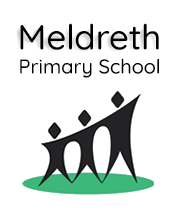Therapeutic Thinking at Meldreth Primary School
At Meldreth Primary School, we use Therapeutic Thinking to create a safe and supportive environment where all children, including those who may display challenging behaviours, can thrive. Based on sound, evidence-based principles, Therapeutic Thinking promotes positive behaviour strategies that focus on understanding and supporting the emotional and social needs of our pupils.
Our Approach
Our focus is on proactive, holistic behaviour management, and we aim to:
- Promote safe and effective techniques: We teach staff safe methods to manage behaviour, including therapeutic, educational, and protective handling strategies.
- Provide a whole-school response: We ensure that every member of staff works together to address behaviour in a way that maintains positive relationships, promotes safety, and reduces the need for physical interventions.
- Develop appropriate responses: When incidents of ‘out of control’ behaviour occur, we respond in ways that promote long-term change and understanding, rather than suppression or punishment.
The Cambridgeshire Therapeutic Thinking Methodology
The Cambridgeshire Therapeutic Thinking model prioritises the pro-social feelings of all individuals within the school. It encourages us to consider the emotions and thoughts behind a pupil’s behaviour, as well as the impact it has on others within the school community. This approach helps to:
- Understand the underlying reasons for behaviour: We work to understand that challenging behaviour is often linked to trauma, attachment issues, or adverse childhood experiences.
- Create lasting change: By focusing on the root causes of behaviour, we encourage long-term behavioural change, rather than simply addressing the surface-level actions.
This approach fosters a supportive environment where all children are encouraged to understand their emotions and self-regulate, leading to a better school experience for everyone.
Training and Support for Our Staff
At Meldreth Primary, we believe in continuous learning and improvement. We have two qualified Therapeutic Thinking instructors at our school, and all staff receive annual training in this approach. This ensures that everyone working with children has the skills and knowledge needed to provide effective support, including:
- Accurate identification of pupil needs
- High-quality planning for positive behaviours
- Practical approaches to de-escalation
- Follow-up restorative support and risk assessments
What Difference Does This Make?
By embedding Therapeutic Thinking across the school, we have developed a whole-school approach to inclusion. This includes:
- Identifying pupil needs early
- Developing policies that promote positive behaviour
- Planning practical, restorative responses to incidents of challenging behaviour
- Ensuring that every staff member can support pupils to self-regulate and manage their emotions effectively.
This results in fewer incidents of physical contact, better emotional regulation, and improved relationships between staff and pupils.
Understanding Behaviour: The Poem ‘Why I Am Rude’
At Meldreth Primary, we understand that challenging behaviours are often a reflection of emotional pain rather than wilful defiance. We believe in the importance of understanding the ‘why’ behind these behaviours.
The poem ‘Why I Am Rude’, written by Sarah Dillon, helps our parents and school community understand that children who display challenging behaviours may be communicating their pain through these actions. This may be the result of trauma, attachment issues, or adverse childhood experiences that have shaped the child's view of themselves and others.
These children are not rude—they are communicating their pain.
We are committed to helping all children at Meldreth Primary School feel safe, understood, and supported as they grow emotionally and socially. If you have any questions or would like more information about our Therapeutic Thinking approach, please don’t hesitate to get in touch.
